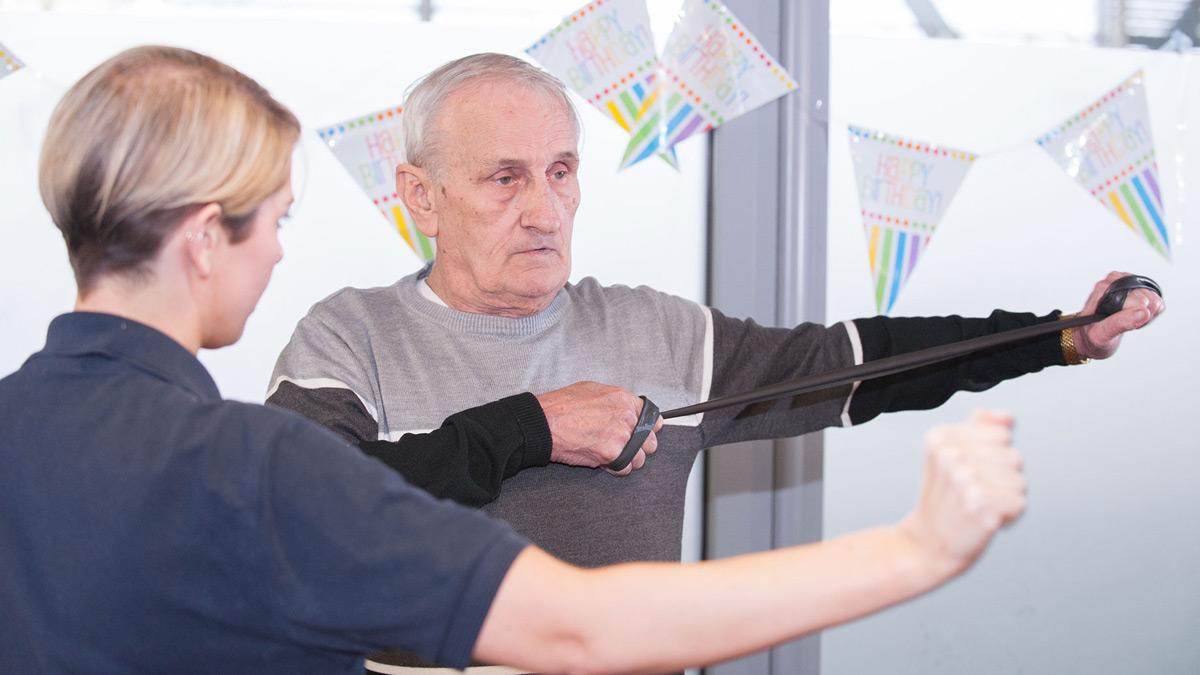WRONG, WRONG, WRONG! Survivors want recovery you blithering idiots, not 'access'! Does no one in the stroke medical world have two functioning neurons to rub together for a spark of intelligence? This is why survivors need to be in charge, even with damaged brains we know more about what survivors need than these idiots!
CSP responds to RCOG and Stroke Association call for better access to rehab

The Royal College of Obstetricians and Gynaecologists (RCOG) has published a report stating that waiting times for gynaecology services have increased across the UK, with more than three quarters of a million women now waiting for treatment for non-cancer related conditions.
At the same time, the Stroke Association has published latest figures from the Sentinel Stroke National Audit Programme (SSNAP) which covers England, Wales and Northern Ireland highlighting that fundamental aspects of acute stroke care have deteriorated compared to a decade ago. It points to health inequality created by inconsistent access to rehab across different regions.
Both reports echo CSP calls for protected funding for community services as part of the government’s ten-year plan to transform the NHS. The RCOG specifically references the need for specialist support, such as pelvic health physiotherapy, to help women waiting for care to manage their symptoms.
The Stroke Association is calling for greater investment for in-hospital and community rehabilitation services. The CSP underscored the urgency of stroke rehab staffing across acute and community sectors being expanded to meet current NICE recommendations.
Sara Hazzard, CSP assistant director and co-chair of the Community Rehabilitation Alliance (CRA), said:
It’s striking to see both of these reports released on the same day, each shining a light on the hundreds of thousands of people who are denied the care and support they need to live their lives to the fullest.
The latest SSNAP report shows a rise in people receiving integrated community-based rehabilitation, which is a step forward.
'However, the more troubling trend is the significant decline allocated to essential therapies, including physiotherapy, over the past five years. Teams are typically seeing patients for 35 minutes of physiotherapy a day, falling short of the target of 45 minutes per day for those that need it. This reduction is a stark setback for patient care.'
Dr Kate Lough, chair of the Pelvic Obstetric and Gynaecology Physiotherapy (POGP) professional network, echoes the CSP call for protected long-term funding:
Recent reports have highlighted the importance of connected and multidisciplinary care. It is key that women’s needs are identified and met by services that are available and these are prioritised for funding.
Long term commitment will enable optimal service provision including developing appropriate resources that are accessible and cost-effective.
'Physiotherapy training and postgraduate experience needs to include earlier access to skills development in key rehabilitation areas to ensure that workforce gaps in the NHS do not compromise healthcare.'
It is important that governments in all four UK countries fulfil policy commitments and act on these issues highlighted in both reports. Physiotherapy is essential to delivering the government’s ambitions to shift from ‘sickness to prevention’.
No comments:
Post a Comment